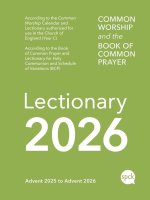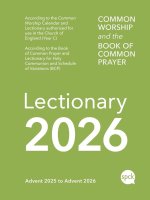This book has transformed my view of almsgiving. Despite coming in at a very readable 40 pages, Bishop Alexei’s Spiritual Transformation & Giving is a thorough and enthusiastic exhortation to pursue God through merciful almsgiving. Bishop Alexei begins by quickly getting to what I believe to be the thesis of the book: “We have what we have in order that we may be merciful stewards of God’s own mercy toward us, acting with generosity to those in need and to the Church, which needs our collaboration, our synergy.” (Page 5) The rest of the book is a comprehensive unpacking of the realities, challenges, and rewards of giving as seen by the Church historically, and by psychological literature contemporarily. In the first few chapters, Bishop Alexei examines almsgiving as an integral practice within the Christian faith. He draws heavily from scripture, as well as St. John Chrysostom and St. Jerome, throughout the book. While he warns against displaying charitable deeds before men (Matthew 6:1), Bishop Alexei shows just how central almsgiving has always been to the Church. He quotes the church fathers in asserting that, despite the high regard for asceticism in the early church, almsgiving was seen as an even greater asceticism, because in addition to shaping the ascetic’s, or the giver’s, soul it also benefited the needy. This is one of the most striking points to me. Bishop Alexei makes clear that almsgiving primarily serves to help me, the giver, draw closer to God. "When people do not give to those in need, the wealth they possess ends up consuming them and corrupting them." This quote from St. John Chrysostom highlights the danger of neglecting a spirit of mercy. Yet God does not desire that we give out of reluctant obligation. In His love, God invites us to join Him, to be the hands and feet of His mercy, and in doing so invites us to become like Him (“Be merciful, even as your Father is merciful.” Luke 6:36). This call to give alms is really a call to become like Christ! Bishop Alexei bluntly addresses the fact that this is a difficult aspect of Christian life for many: “Fear, uncertainty, and being of little faith cannot simply be wished away. Believers also need help to strive for the perfection to which the gospel calls us all (Page 20). To that end, I was thrilled to find that the second half of this book is full of instruction for how to grow in faith and in the giving of alms, including practical steps on how to incorporate giving into the daily pattern of worship. He also breaks down what our almsgiving should look like in terms of habits, thoughts, and intentions, and provides simple ways to help cultivate a spirit of gratitude and generosity. Somehow, in our age of self-fulfillment and materialism, Bishop Alexei has confronted this heavy and challenging topic in a way that left me encouraged and even excited about our opportunities give what we have been given. The entire book presents giving not as a legal or moral requirement, but as a free invitation to participate in God's mercy on earth. He concludes the book by focusing on the ways almsgiving makes us more human, and more like Christ. It helps us defend against the temptations of greed and lust by putting others above ourselves, it calls forth love in the tangible form of time and effort for those in need around us, and it is a practically reinforces to ourselves that our highest treasure is Christ.
Trustpilot









